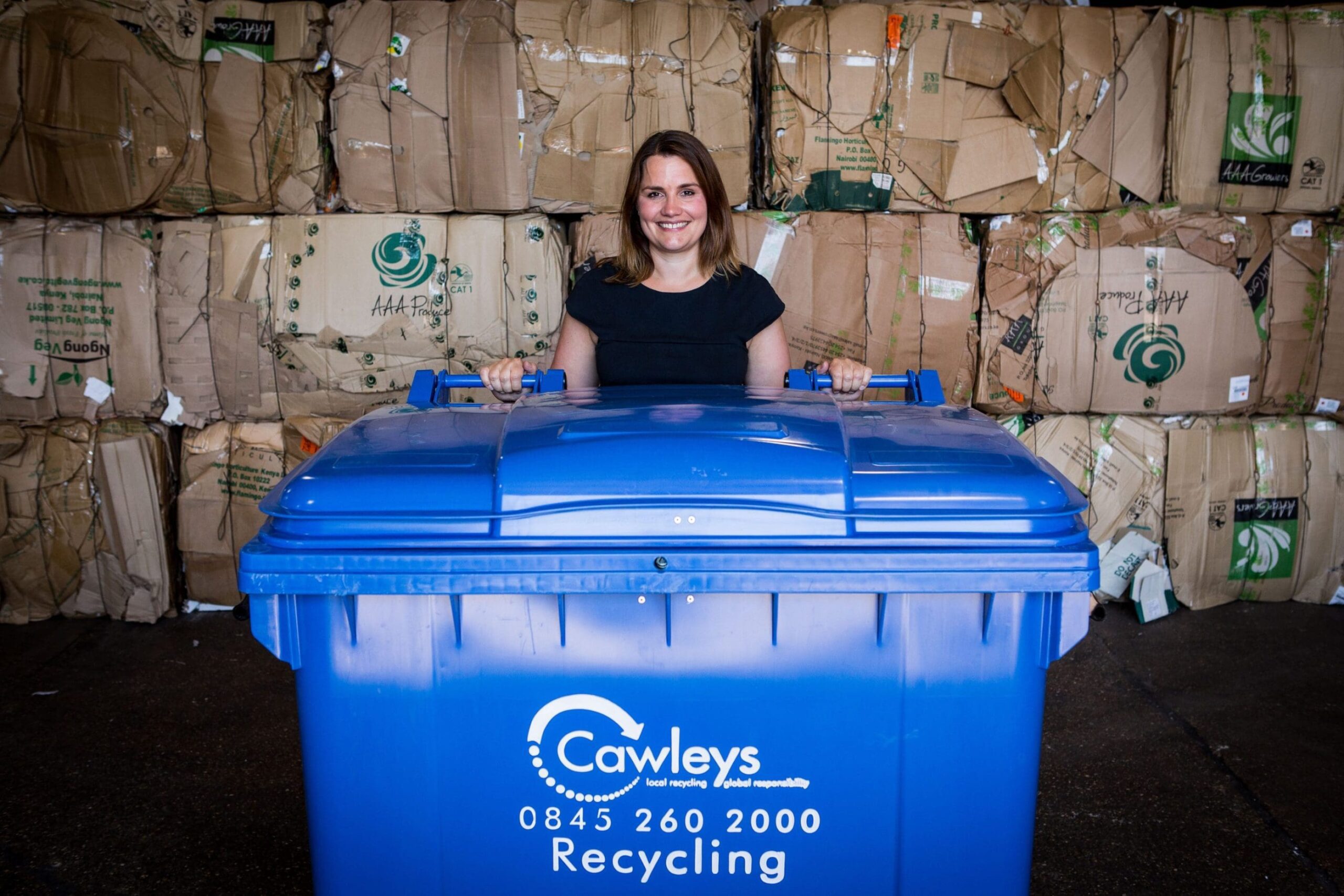As businesses move into the new year the increasing importance of sustainability, and the welfare of our planet, is becoming much more of a pressing issue. As such, companies are facing increased pressure to respond and get on board with sustainable business models that benefit both the planet and help fight climate change. A recent survey by the Institute of Workplace and Facilities Management found that 66% of respondents thought sustainability was either very or extremely important for businesses.
One such area is recycling and, although segregating multiple waste streams can be confusing and a challenge for some businesses, and with COP26 outlining crucial changes that are needed, collectively businesses need to work a little harder to recycle more, reduce carbon emissions and help fight climate change.
For example, if each business considered recycling its food waste this could make a real impact. Currently 35% of the UK’s Greenhouse gases come from food and drink, historically a high volume of food waste is often sent straight to landfill where it breaks down into carbon dioxide and methane, both of which are powerful greenhouse gases that have been proven to cause significant harm to the environment.

Anaerobic digestion is a much more environmentally friendly solution to landfill and uses micro-organisms known as methanogens to breakdown the food matter and convert it into bio methane, a renewable form of energy. This gas is then used to create heat and electricity which has a variety of uses including contributing to the running of the National Grid. The Anaerobic Digestion process also creates a bio-fertiliser which is rich in potassium and nitrogen and can be used to fertilise soil for plant growth. The process is a much more sustainable solution to sending food waste to landfill and effectively eliminates the carbon emissions that would have been generated if that food waste had instead been sent to landfill.
Landfill sites continue to have monumental impacts on our lives and the environment. As the organic mass in landfills decompose, methane gas is released. Methane is 84 times more effective at absorbing the sun’s heat than carbon dioxide, making it one of the most potent greenhouse gases and a huge contributor to climate change.
Recycling your organisation’s food waste is just one of the ways that a business can become more environmentally friendly. As the green agenda gains pace more and more people will be expecting social value, ethical practices and environmental awareness to become the norm and those that don’t do their bit may find they lose custom. With this in mind it is always important to work with a recycling partner that can take need of all types of waste in a sustainable way.
Separating waste at the point of disposal is an extremely effective way of doing your bit, not only does it make the recycling process easier, it also reduces contamination which can occur when recyclable materials get wet or dirty from food waste or liquids. Essentially almost all forms of waste are recyclable but some are far more effective than others. Glass for example is 100% recyclable and can be reused over and over again. Once collected it is transported to a specialist facility for crushing, mixing, and melting to create new glass products or to be used in the production of items such as building materials. The recycling of glass greatly reduces the need for extraction of raw materials from the environment but despite this, only 50% of the UK’s glass is actually recycled[AC1]! It is a simple waste stream to collect and businesses can assure an easy win by arranging a separate glass collection as often as required.
With COP26 outlining drastic actions needed if we are to achieve a net-zero emissions society by the 2050 deadline, businesses cannot keep letting these highly recyclable materials go to waste. As we progress into the new year it is crucial businesses incorporate a circular economy business model or risk affecting their brand and the planet we live on. Other materials that are particularly suited to recycling include paper, card, aluminium cans, waste electricals and, of course, plastics. Plastic bottles and similar such single use containers are convenient to collect and segregate but it doesn’t stop there. Other commercially used plastic items such as clear polythene, plastic buckets, correx and polystyrene can also be segregated for effective recycling into new plastic products.
Although less obvious, waste streams such as coffee grounds, drinks cups, cartons, wood and electronics, are all also ripe for recycling. For example, waste electrics or WEEE as it is commonly known is currently one of the fastest growing waste streams and has strict regulation banning the use of certain hazardous components in newly manufactured goods in this category. In waste disposal terms this requires all waste goods of this type are recycled. However currently only 12.5% of this waste stream is currently being recycled[AC2]. This is just one example of where improvements can be made, but we all need to do more. Businesses need to be increasingly accountable for their waste and the measures they are taking to address their carbon footprint.
As COP26 has demonstrated, businesses must accelerate action to tackle the climate crisis through collaboration between governments and civil society. In the new year there will be more discussion around our roadmap to a net-zero society and as such, businesses would be wise to adopt a more sustainable approach to waste disposal right now.
As a full-service recycling and waste management organisation, Cawleys provide a complete range of reliable and cost-effective solutions that have a sustainable focus including the recycling of food waste, plastics, coffee grounds, hazardous materials, lithium batteries and many other types of waste.
If your business would like to review its waste arrangements and uplift recycling rates, get in touch today on 0800 260 2000 or visit Cawleys.co.uk













